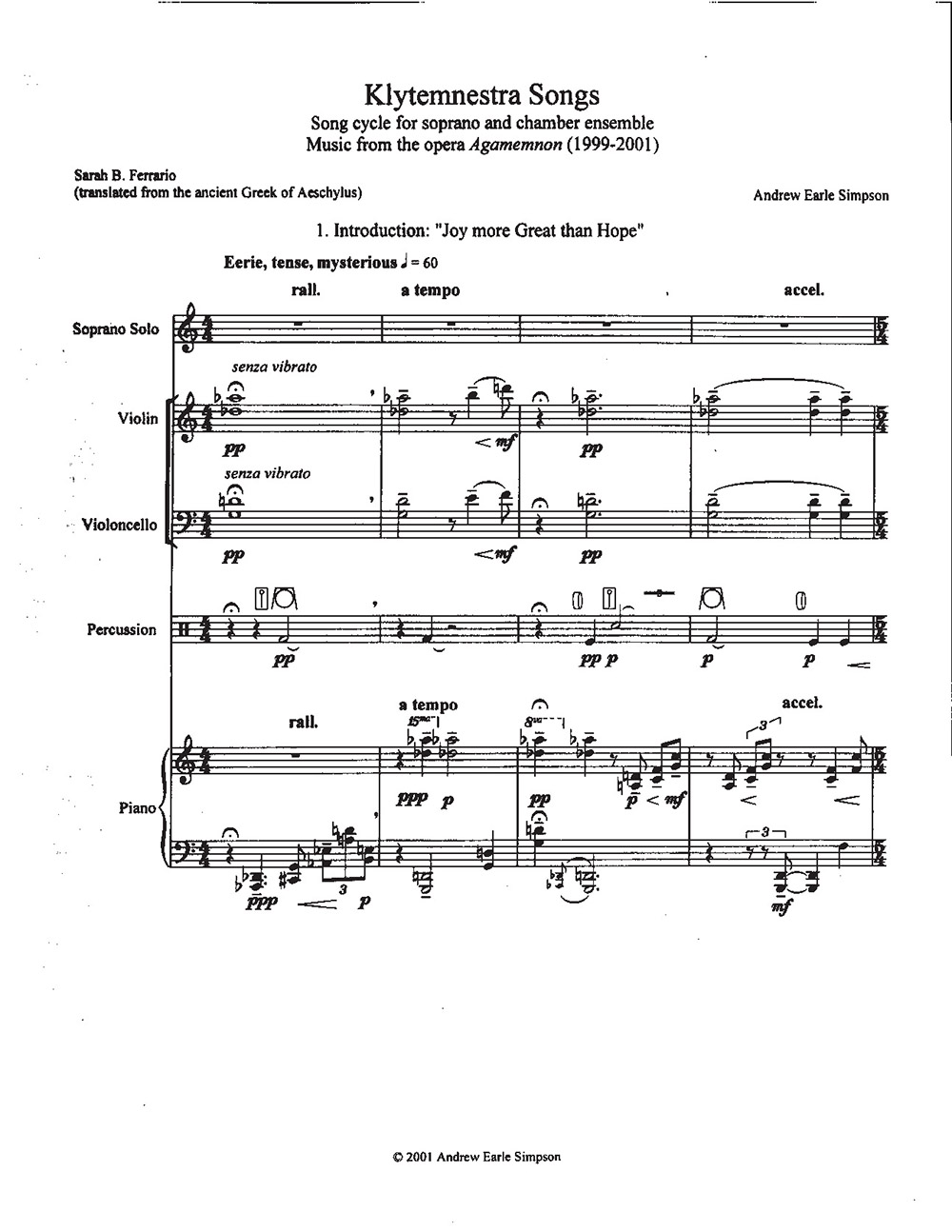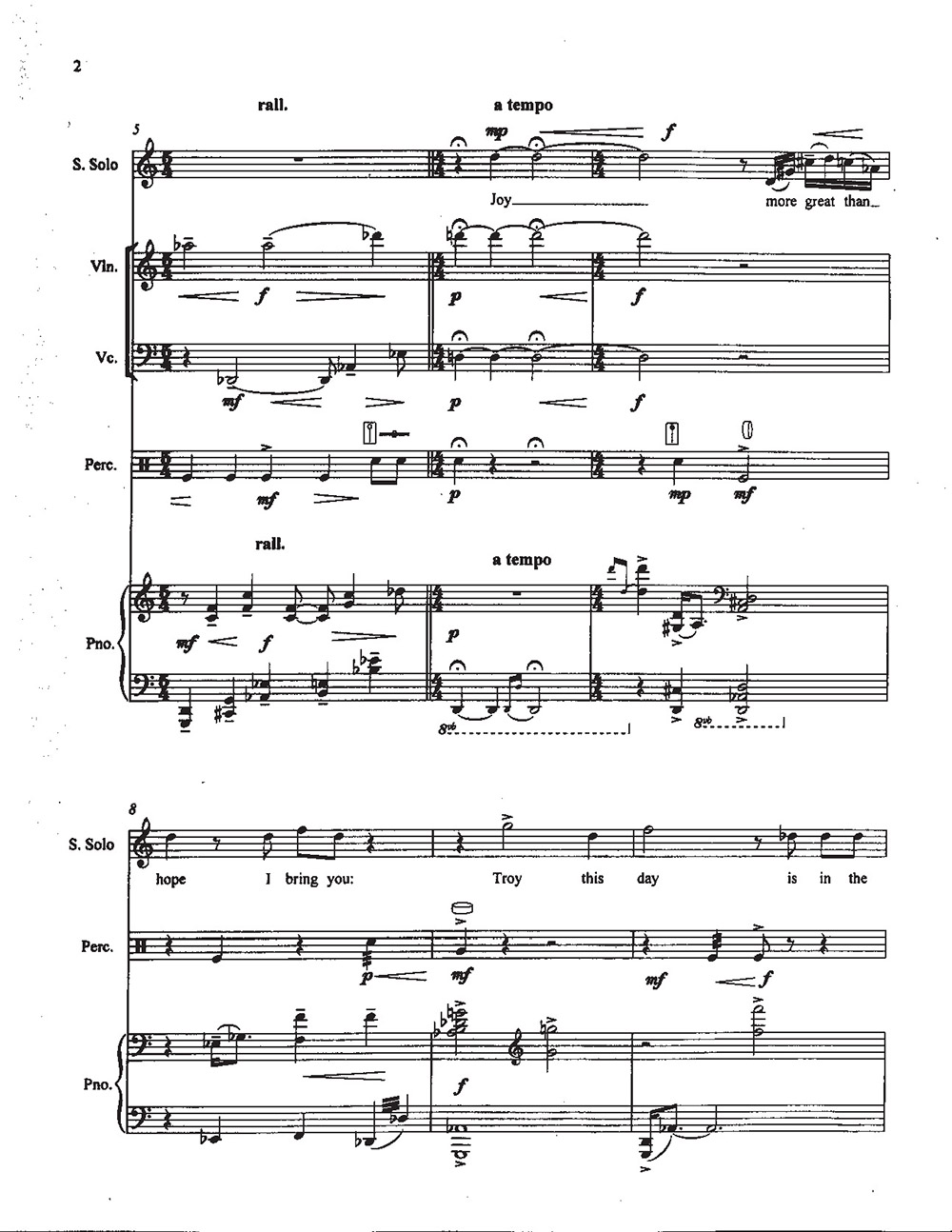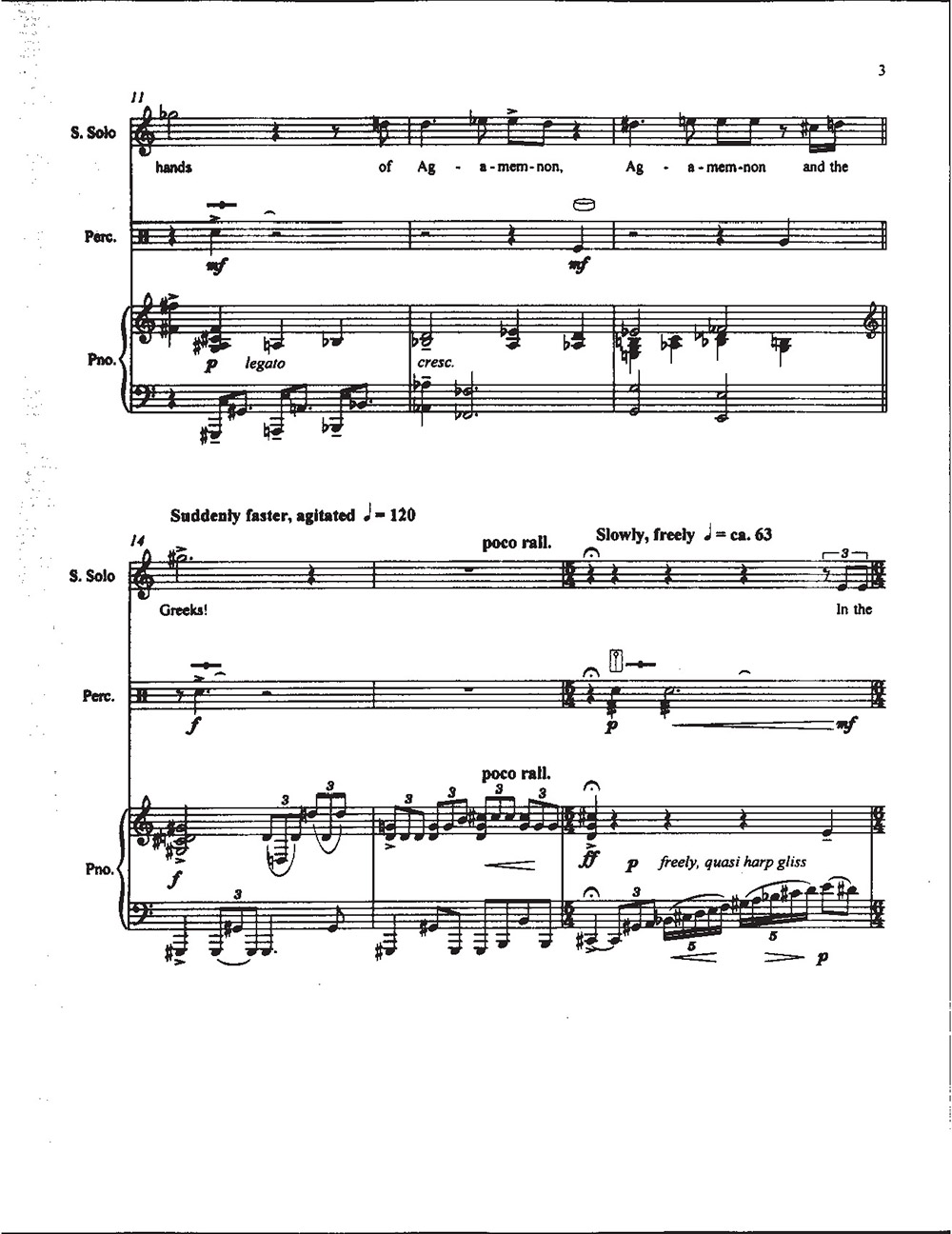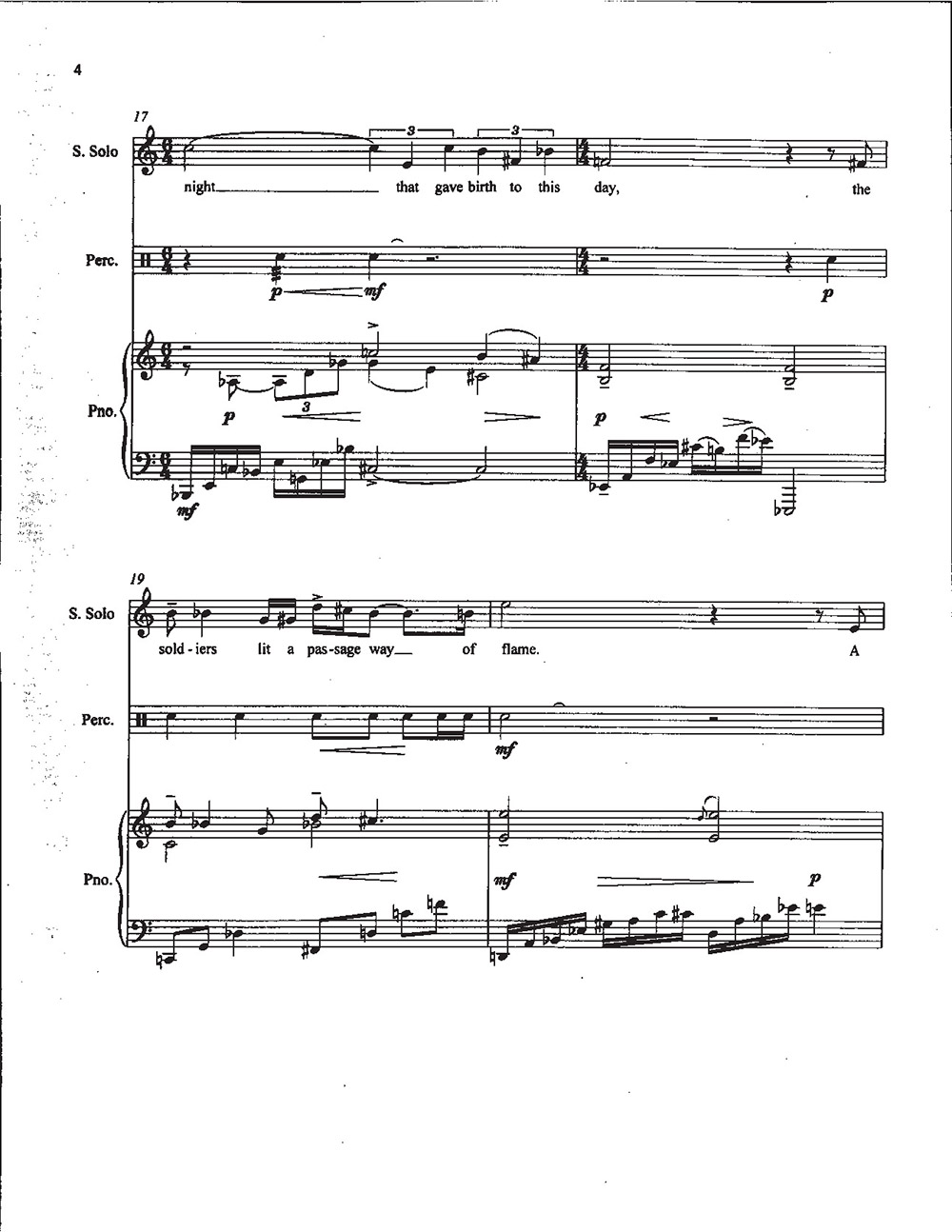Klytemnestra Songs (2001)
song cycle for mezzo-soprano and piano, 19 minutes
Instrumentation
mezzo-soprano, piano
also available for mzo sop, vn, vc, pno, perc
Text
Aeschylus, Agamemnon: English trans. by Sarah B. Ferrario.
This cycle is drawn from music from my opera Agamemnon, and features prominent excerpts from the role of the protagonist, Klytemnestra (mezzo-soprano or dramatic soprano).
Listen
Troy is Fallen
A Woman Abandoned
Performer:
Jessi Baden-Campbell, mezzo-soprano
Program Notes
Klytemnestra Songs is a song cycle for soprano and piano or chamber ensemble, comprising the highlights of the role of Klytemnestra in my one-act opera Agamemnon(1999-2001), based on Aeschylus' tragedy. Klytemnestra is for me the greatest character in ancient Greek drama: cunning, passionate, ruthless, and deceitful, she is a rich and terrifying personage. The operatic role of Klytemnestra, therefore, requires a soprano of great presence and power, not to mention endurance, as it is an extremely large role.
The opera Agamemnon, in one act and eight scenes, is a highly faithful setting of Aeschylus' tragedy, including an English libretto which has been directly translated from the ancient Greek by librettist Sarah Ferrario. It is the first of a trilogy of three operas setting Aeschylus' complete Oresteia trilogy: Agamemnon (2001, 2003), The Libation Bearers (2004), and The Furies (2006). The characters, order of events, and choruses of Aeschylus' Agamemnon have been retained; and although the libretto necessarily abridges Aeschylus' text, the relative proportions of sections within the tragedy have been preserved as faithfully as possible. Nevertheless, Agamemnon does not attempt to reproduce an ancient production: it is a completely contemporary American opera through which Aeschylus' work has been illuminated.
Klytemnestra Songs, in five movements, contains Klytemnestra's three arias, as well as two other important moments from the opera. Together, the cycle presents a clear picture of Klytemnestra's role, and highlights the versatility required of the soprano.
—Andrew Earle Simpson



